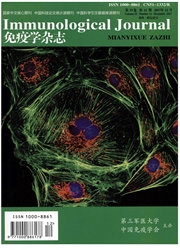

 中文摘要:
中文摘要:
唑类抗真菌药是曲霉病处理中一种最为常用的药物,而曲霉病主要是由烟曲霉菌(Aspergillus fumigatus)感染引起的。越来越多的报道发现A.曲霉株(A.fumigatus isolates)具有唑类抗真菌药耐药性,这是曲霉病治疗中一个巨大的挑战。A.曲霉唑类抗真菌药耐药株(ARAF)在侵袭性曲霉病患者中具有非常高的致死率,这对临床微生物学者如何及时诊断耐药性和提出合适的干预策略等方面提出极大的挑战。ARAF耐药株既存在cyp51A突变型又存在cyp51A非突变型,而且cyp51A非突变型在唑类抗真菌药耐药中占有的比重越来越高,为临床的诊断和治疗提出了更高的挑战。本综述总结了目前A.曲霉唑类抗真菌药耐药株在全球各国的发病情况及其耐药机制研究的最新进展。
 英文摘要:
英文摘要:
Azole antifungal drugs are a common used in the management of Aspergillosis, a disease of which mainly caused by Aspergillus fumigatus(A. fumigatus). However, variable prevalence of azole antifungal resistance in A. fumigatus isolates has been increasingly reported worldwide. This has been a great challenge in the management of aspergillosis. Azole-resistant A. fumigatus(ARAF) isolates causes a highest mortality rates in patients with invasive aspergillosis, which have been posed serious challenges to the clinical microbiologist for timely identification of resistance and appropriate therapeutic interventions. The majority of ARAF isolates include the cyp51 A gene mutation and non-cyp51 A mutations, which has been increasing reported that contributing to azole resistant phenotypes. The current review summarized the prevalence worldwide and various mechanisms implicated in the development of azole resistance in A. fumigatus.
 同期刊论文项目
同期刊论文项目
 同项目期刊论文
同项目期刊论文
 期刊信息
期刊信息
